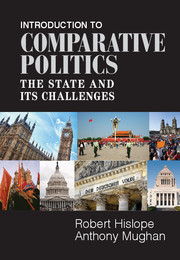7 - Ethnic Nationalism
Published online by Cambridge University Press: 05 June 2012
Summary
Multiethnic states are the norm in the world today. Currently, there are only six states on the planet that are, to all intents and purposes, ethnically homogeneous. South Korea, North Korea, Lesotho, Algeria, Morocco, and Egypt all have a single ethnic group that accounts for 99 percent or more of their total populations. (Japan at 98.5 percent and Tunisia at 98 percent are close to the mark.) This means that the remainder of the world's states are, to one degree or another, multiethnic. A great variety of political consequences arise from this basic fact, with some states being peaceful and cooperative across ethnic cleavage lines and others being an intolerable, violent hell as warring groups collide. In between are states where ethnic politics is institutionally contained and expressed in struggles for, among other things, language rights, constitutional recognition of ethnic symbols and status, economic equality, educational opportunities, immigrant rights, and pathways to citizenship.
Although most multiethnic societies are stable and peaceful (Fearon and Laitin 1996), many experience some kind of turbulence along their ethnic fault lines. The typical pattern of ethnic politics can be described variously as competitive coexistence, interethnic rivalry, multiculturalism, and/or identity politics. In these situations, groups compete peacefully over perceived political, economic, and cultural injustices (past and present). Because such points of contention are normally fraught with emotional content and extremely difficult to solve definitively, even long-established and peaceful forms of ethnic competition can put the governing capacity of states to the test. This is especially the case when political parties organize around ethnic cleavages. Ethnic parties often gain electoral advantage by raising the temperature of ethnic relations and saturating the national discourse with a rhetoric based on interethnic suspicion, stereotype, and chauvinism. Under these circumstances, a polity can expect little relief from ethnic tensions.
- Type
- Chapter
- Information
- Introduction to Comparative PoliticsThe State and its Challenges, pp. 205 - 235Publisher: Cambridge University PressPrint publication year: 2012



